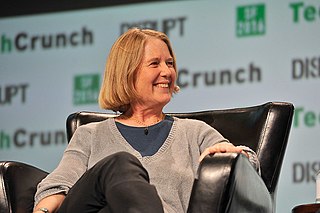A Quote by Diane Greene
Everything is changing now that we are in the cloud in terms of sharing our data, understanding our data using new techniques like machine learning.
Quote Topics
Related Quotes
MapReduce has become the assembly language for big data processing, and SnapReduce employs sophisticated techniques to compile SnapLogic data integration pipelines into this new big data target language. Applying everything we know about the two worlds of integration and Hadoop, we built our technology to directly fit MapReduce, making the process of connectivity and large scale data integration seamless and simple.
In my view, our approach to global warming exemplifies everything that is wrong with our approach to the environment. We are basing our decisions on speculation, not evidence. Proponents are pressing their views with more PR than scientific data. Indeed, we have allowed the whole issue to be politicized-red vs blue, Republican vs Democrat. This is in my view absurd. Data aren't political. Data are data. Politics leads you in the direction of a belief. Data, if you follow them, lead you to truth.
Scientific knowledge is, by its nature, provisional. This is due to the fact that as time goes on, with the invention of better instruments, more data and better data hone our understanding further. Social, cultural, economic, and political context are relevant to our understanding of how science works.
If we study learning as a data science, we can reverse engineer the human brain and tailor learning techniques to maximize the chances of student success. This is the biggest revolution that could happen in education, turning it into a data-driven science, and not such a medieval set of rumors professors tend to carry on.
It is now very clear that techniques of machine-human interfacing, pharmacology of the synthetic variety, all kinds of manipulative techniques, all kinds of data storage, imaging and retrieval techniques - all of this is coalescing toward the potential of a truly demonic or angelic kind of self-imaging of our culture... And the people who are on the demonic side are fully aware of this and hurrying full-tilt forward with their plans to capture everyone as a 100% believing consumer inside some kind of a beige furnished fascism that won't even raise a ripple.
Everyone knows, or should know, that everything we type on our computers or say into our cell phones is being disseminated throughout the datasphere. And most of it is recorded and parsed by big data servers. Why do you think Gmail and Facebook are free? You think they're corporate gifts? We pay with our data.
Data isn't information. ... Information, unlike data, is useful. While there's a gulf between data and information, there's a wide ocean between information and knowledge. What turns the gears in our brains isn't information, but ideas, inventions, and inspiration. Knowledge-not information-implies understanding. And beyond knowledge lies what we should be seeking: wisdom.
Basically, if you want to have a computer system that could pass the Turing test, it as a machine is going to have to be able to self-reference and use its own experience and the sense data that it's taking in to basically create its own understanding of the world and use that as a reference point for all new sense data that's coming in to it.



































